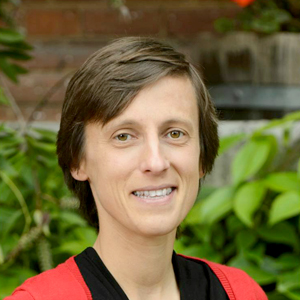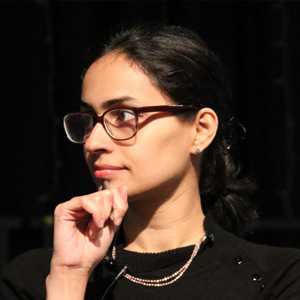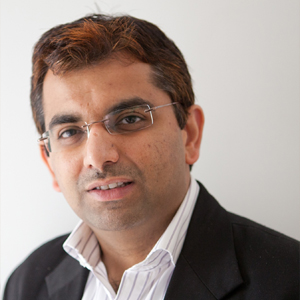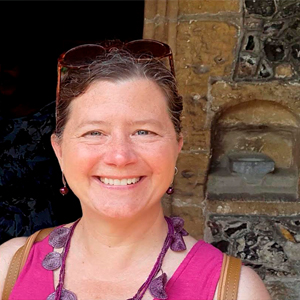| 30 May 2019 | 9:00am - 4:30pm | Seminar Room SG2, Alison Richard Building, 7 West Road, Cambridge, CB3 9DT | |
- Description
- Programme
- Abstract and Bio
Description
Online registration is closed.
Workshop Convener:
Dr Charlotte Lemanski (Department of Geography, University of Cambridge)
This one-day workshop brings together speakers across multiple disciplines exploring inter-disciplinary approaches to the challenges of energy and housing, with a particular focus on Asia and Africa. Speakers will contribute to these debates by explaining their relevant research.
Speakers include:
Lucy Baker (University of Sussex)
Ed Brown (University of Loughborough)
Rajat Gupta (Oxford Brookes University)
Sylvy Jaglin (University of Paris-Est)
Radhika Kholsa (University of Oxford)
Jon Phillips (University of Cambridge)
Kathryn B Janda (University College London)
The event is supported by the British Academy Cities and Infrastructure grant and Global Energy Nexus in Urban Settlements (GENUS) Research Network at CRASSH.
Administrative assistance: Networks@crassh.cam.ac.uk
CRASSH is not responsible for the content of external websites and readings. All speakers' views are their own.


Programme
| 9.00 - 9.30 | Registration |
| 9.30 - 10.00 | Introduction to the Dr Charlotte Lemanski’s British Academy project and findings
Dr Charlotte Lemanski (University of Cambridge) and |
| 10.00 - 10.30 | Professor Ed Brown (Loughborough University) 'Beyond Widgets and Dollars: Prioritising Social Science-Led Energy and Development Research' |
| 10.30 - 11.00 | Dr Kathryn B. Janda (University College London) 'Modeling Urban Development: What Is (In)Visible to Data-Driven Energy Demand Research' |
| 11.00 - 11.30 | Discussion Chaired by Professor Jaideep Prabhu (University of Cambridge) |
| 11.30 - 12.00 | Tea/Coffee Break |
| 12.00 - 12.30 | Professor Sylvy Jaglin (University of Paris-Est Marne-la-Vallée) 'Hybridisation and Governance Challenges of Emerging Electricity Configurations in Sub-Saharan Cities' |
| 12.30 - 13.00 | Dr Lucy Baker (Univesrity of Sussex) and 'Energy Decentralisation, Energy Democracy?' |
| 13.00 - 13.30 | Discussion Chaired by Dr Jiska De Groot (University of Cape Town)
' |
| 13.30 - 14.30 | Lunch Break |
| 14.30 - 15.00 | Dr Radhika Khosla (University of Oxford) 'Examining Energy Consumption Transitions in Urbanizing Indian Households' |
| 15.00 - 15.30 | Professor Rajat Gupta (Oxford Brookes University) 'Mainstreaming Sustainable Social Housing in India:Learning from Resident Experiences' |
| 15.30 - 16.00 | Discussion Chaired by Dr Amir Bazaz (Indian Institute for Human Settlements) |
| 16.00 - 16.15 | Conclusion and looking forward/next steps Chaired by Dr Charlotte Lemanski |
| 16.30 - 18.00 | Drinks Reception |
Abstract and Bio

Charlotte Lemanski (University of Cambridge)
Convenor
Dr Charlotte Lemanski is a Senior Lecturer in the Department of Geography, University of Cambridge. She is an urban geographer, interested in critically analysing the everyday and structural realities and constraints of inequality within the Southern city. Dr Lemanski’s primary empirical focus is contemporary South Africa, with a secondary interest in India. Her current research focuses specifically on inequalities related to housing and infrastructure, as well as urban governance and citizenship. She is developing the conceptual framework of Infrastructural Citizenship, and her edited collection “Citizenship and Infrastructure: Practices and Identities of Citizens and the State” was published by Routledge in 2019.

Jon Phillips (Cambridge) and Lucy Baker (Sussex)
'Energy Decentralisation, Energy Democracy?'
We argue that the distribution of electricity represents an important yet neglected aspect of the politics of energy transitions and explore the implications for the analysis and practice of energy democracy. In recent years, South Africa’s electricity sector has seen the introduction of new actors and technologies with the potential to disrupt how energy is owned, regulated and planned (Baker and Phillips 2018). We analyse these developments in historical context, finding that the reconfiguration of electricity distribution faces significant political and economic challenges that are rooted in the country’s socio-economic and racial inequalities and its heavy dependence on coal-fired power. First small-scale embedded generation (e.g. roof-top solar power) offers potential opportunities for affordable, decentralised, low-carbon energy, yet disruption to the coal-powered electric grid and the monopoly of South Africa’s electricity utility has been minimal to date. Second, the ownership of small-scale embedded generation creates tensions between equitable and low-carbon energy transitions and threatens channels of redistribution. Third, South Africa provides insights of global significance into how political institutions have responded to social and technological drivers of change, in a context where planning and regulation have followed rather than led infrastructural developments. These market developments raise important questions on the relationship between technological and political decentralisation, and what it means to democratise energy.
Jon Phillips is a Lecturer in the Centre of Development Studies at the University of Cambridge. He is broadly interested in relationships between society and environment, and specifically in the production and governance of energy in the developing world, from fossil fuel extraction to electricity distribution. For last three years he has been researching urban energy politics in South Africa.
Lucy Baker is a senior research fellow in the Science Policy Research Unit at the University of Sussex and a visiting fellow at the Energy Research Centre, University of Cape Town. Lucy’s areas of research include: the political economy of electricity; renewable energy policy and finance; renewable energy technology development and global production networks; and low-carbon development in the global South. Lucy has significant country expertise on South Africa. Lucy holds a PhD from the University of East Anglia, UK, an MSc in Development Studies from the School of Oriental and African Studies and an MA in Hispanic Studies and French from the University of Edinburgh. Prior to joining academia she worked for ten years in the fields of environment, development and human rights as a policy officer, campaigner and fund-raiser with non-governmental organisations Amnesty International, Oxfam and Bretton Woods Project. Lucy has worked in Africa, Asia and Latin America.
 Ed Brown (Loughborough University)
Ed Brown (Loughborough University)
'Beyond Widgets and Dollars: Prioritising Social Science-Led Energy and Development Research' (tbc)
This paper presents some of the findings from a recent review of the state of UK research and innovation in energy and international development which we (the LCEDN) conducted for DFID. Recent years have seen a considerable expansion of research interest in developments in the energy sector across the countries of the Global South, although until recently the UK has lagged behind some other countries in funding research in this area. Whilst there has undoubtedly been a significant global growth in energy and development research over the past few years, it has tended to be dominated by two approaches/foci. The first is an engineering focus on the development of new technologies or new forms of deployment of existing technologies (for example the development of new cookstoves, new battery design for PV systems, smart-grid technologies for mini-grids, development of pay as you go systems etc). The second approach has been a search for the methodologies required to take new technological developments ‘to scale’ via the development of new ‘delivery models’ designed to accelerate the deployment of renewable energy technologies in pursuit of the achievement of the international access targets.
Whilst substantial and important work has been done in these fields, what has largely been missing in this effort has been an adequate appreciation of the broader social context of these interventions. There is, therefore, an urgent need for new research investments into areas such as the unintended and often uneven social consequences of technological interventions, the roots of energy poverty and its complex social dynamics and how interventions are embedded within such contexts, the complex ways in which user decisions, choices, values, practices and routines affect technological fit (e.g. in relation to cooking) and the complex ways in which energy use and consumption issues intersect with, not only food and water issues (as in the current water energy food nexus studies) but also climate, health, sanitation, security, education and equity and justice issues.
In the paper, we outline some of the dimensions that a more social-science-led approach to energy and development research might look like. Rather than acting as a facilitaor and enabler for tne spread of pre-designed technical solutions, social science-led research can bring to life the lived worlds of the intended beneficiaries of renewable energy transitions, and can develop ways of working with relevant values, preferences and capacities for innovation
Professor Ed Brown is Chair of Global Energy Challenges at Loughborough University in the UK. Ed is a geographer (PhD, Edinburgh University) with nearly thirty years of research experience in international development, his interests lie in the fields of energy access and low carbon energy transitions, questions of transparency and corruption and financial globalization and the financial needs of the poor. He has led a range of major UK-government funded energy projects over recent years, is Co-Coordinator of the UK Low Carbon Energy for Development Network (LCEDN) and is Principal Investigator (PI) on the new multi-million UKAid-funded Modern Energy Cooking Services (MECS) program.
 Sylvy Jaglin (University of Paris-Est Marne-la-Vallée)
Sylvy Jaglin (University of Paris-Est Marne-la-Vallée)
'Hybridisation and Governance Challenges of Emerging Electricity Configurations in Sub-Saharan Cities'
The talk focuses on the dynamic evolution of sociotechnical arrangements that allow households and enterprises to access electricity in many sub-Saharan cities. As technological innovations combine with a plurality of service provision patterns, urban electricity configurations are shaped by hybridization processes that raise new challenges and opportunities for the governance of urban infrastructures. How can urban techno-political frameworks incorporate the plurality of providers and socio-technical arrangements so as to improve accessibility to critical services? How can planning and regulation instruments be re-designed in a way that preserve flexibility and enhance efficiency and equity?
Sylvy Jaglin is a professor of urban planning at the University of Paris-Est Marne-la-Vallée and a researcher at Latts (Laboratoire Techniques, Territoires et Sociétés). Her research focuses on the governance of urban and infrastructural change in sub-Saharan African cities. With Eric Verdeil, she leads the ANR research project Hybridelec (Electric hybrids: emerging forms of energy transition in southern cities). She is also a member of Labex Futurs Urbains, where she co-coordinates the inter-disciplinary research group City & Energy.
 Radhika Khosla (Oxford and Somerville College)
Radhika Khosla (Oxford and Somerville College)
'Examining Energy Consumption Transitions in Urbanizing Indian Households'
Demand-side measures, such as urban energy management in households, are central to addressing global climate change. Examining and shaping energy consumption patterns is particularly salient in developing countries, where the bulk of urban growth is projected to occur, and which are often the most vulnerable to climate impacts. India, which is at the cusp of the largest urban transition predicted in history, is key to these discussions. Indian cities will host 200 million more people in newly constructed infrastructure by 2030, mostly starting from a low base of development. A combination of residential growth, development needs, rising incomes, and government policy to provide uninterrupted electricity, is projected to increase electricity consumption five to six times between 2014 and 2030, to create unprecedented urban energy demands. Based on surveys undertaken in 2016-17, this presentation examines transitioning electricity consumption patterns in urban housing in India. It discusses results from 5500 representative households in the National Capital Region. Alongside, it discusses results from the growing, yet often ignored, changing energy patterns in low-income housing. Quantitative analysis is complemented with qualitative research on the interactions between technologies, behaviours and institutions. Together, the presentation will discuss which electricity services are demanded as households urbanize, and how the ownership of appliances which provide these services is changing with the ability of households to consume more. Shedding light on these questions helps improve future demand and mitigation potential estimates to systematize research on urban climate solutions. It aims to inform policy measures to lock-in low-carbon development pathways at a scale that is relevant for India, and more broadly, for an adequate global urban response to climate change.
Dr Radhika Khosla is the Research Director of the Oxford India Centre for Sustainable Development at Somerville College, and a Senior Researcher at the Smith School of Enterprise and Environment, School of Geography and the Environment, at the University of Oxford. She works on examining the productive tensions between urban transitions, energy services consumption and climate change, with a focus on developing country cities. The two sets of interrelated questions underlie her research priorities. First, how does consumption of energy-related services change as cities urbanize? What are the socio-technical drivers, systems and institutional structures that shape (and can reconfigure) energy and carbon emission pathways? Second, what forms of governance and political rationalities characterize the varied urban responses to climate change in rapidly developing cities, given their (often competing) objectives to provide urban services? Her broader interdisciplinary research examines how cities in transition manage the tensions of meeting growing energy needs for development while protecting the local and global environment. Radhika's other research affiliations include the Massachusetts Institute of Technology (USA), University of Pennsylvania (USA), Centre for Policy Research (India), and the Natural Resources Defense Council (USA). She serves on government policy committees, and boards of journals and book presses. She holds a PhD in the Geophysical Sciences from the University of Chicago and an undergraduate and master's degrees in Physics from the University of Oxford.
 Rajat Gupta (Oxford Brookes University)
Rajat Gupta (Oxford Brookes University)
'Mainstreaming sustainable social housing in India: learning from resident experiences'
As the Government of India aims to construct 12 million social housing dwelling units through the “Housing for All by 2022” programme, it is vital to identify what the impacts and benefits of housing production at such a massive scale and speed could be, especially when currently sustainability is not effectively mainstreamed in social housing projects.
This presentation describes the wider context, objectives and findings of a two-year research study on mainstreaming sustainable social housing in India. A socio-technical approach was adopted in the research, bringing together primary and secondary data collection with both quantitative and qualitative assessments, stakeholder engagement, surveys and statistical analysis. Large-scale resident surveys (n: 723) were undertaken in five social housing developments located in five different cities to gather subjective feedback from residents about their perception of the indoor environmental conditions (indoor temperature and air quality) in their homes during summer and winter, quality of interiors and surroundings, and the aspects related to the location of the development.
The survey results showed that regardless of their geographic location or materiality of the dwelling residents perceived indoor temperatures in summer to be much more unsatisfactory than in winter. This indicated the inability of the dwelling units to provide comfortable indoor environment in the summer (in absence of air-conditioning). Though inappropriate window design and locations restricted their use to allow for ventilation and day light into the house, the residents’ seemed to be forgiving and learnt to adapt to their surroundings. The lack of cleanliness and absence of maintenance regime was also evident from the survey resulting in unhygienic living conditions. The study showed that only the selection of appropriate building materials and technologies at the design stage is not enough for achieving sustainable social housing developments. Much more needs to be done during the design, construction and operation stages, in order for these developments to be truly sustainable and liveable for the residents.
Professor Rajat Gupta is Director of the multi-disciplinary Oxford Institute for Sustainable Development (OISD) and Low Carbon Building Research Group at Oxford Brookes University (UK), where he also holds professorial chair in sustainable architecture and climate change. He developed the RIBA award-winning DECoRuM model for carbon mapping communities. Rajat’s research interests lie in evaluating building performance from a socio-technical perspective, carbon mapping buildings and neighbourhoods, scaling up energy retrofits and climate change adaptation. As Principal Investigator (PI), he has won over £10 million in research grants to investigate these subjects. He is leader of the UN funded mainstreaming sustainable social housing in India project (MaS-SHIP). He was instrumental in developing and pilot-testing the World’s first Global Common Carbon Metric (CCM) for UNEP and has led research for UN-Habitat on Green building interventions for social housing. Currently Rajat is leading a £1.3m EPSRC/DST funded RESIDE project on residential energy reduction in India, and is co-lead of a Newton Fund project on customising building performance evaluation for India.Until recently Rajat was PI on a four-year £1.14 million ESRC/EPSRC funded EVALOC project on evaluating the impacts of low carbon communities on energy behaviours. Currently he is Co-Investigator on the £8million EPSRC funded Energy Revolution Research Consortium (EnergyREV) and lead academic in the £13.8 million Local Energy Oxfordshire (LEO), a smart local energy system demonstrator funded by Innovate UK.Rajat has published widely, including strategic journal papers on future direction of energy demand research and evaluation of an innovative retrofit programme.
 Kathryn B. Janda (University College London)
Kathryn B. Janda (University College London)
'Modeling Urban Development: What Is (In)Visible to Data-Driven Energy Demand Research'
The world is urbanizing rapidly, experiencing an unprecedented rate of population growth that is increasing demand for energy, food, water, and other natural resources and raising concern about environmental impacts and matters of human security such as poverty, crime, and pandemics.With this growth has come an explosion in Big Data, fed by citizens’ billions of inputs on social media as well as countless other cyber platforms. In this sea of information, some say therelies a singular opportunity to understand and anticipate human dynamics in urban environments.
The scale and complexity of modern cities drives an interest—some might say a ‘need’— for approaches and tools which can assist policy makers and urban planners with the challenges of both understanding the current context and exploring potential future developments. The implications of applying such approaches and tools—which generally aspire to be data-driven and/or ‘smart’—to development processes needs to be carefully considered. This talk briefly introduces several data-driven approaches to the ‘opportunity’ of big data, particularly in energy demand research: urban dynamics, energy epidemiology, and urban building energy models. It notes the presence, absence, and variationin underlying datafor modeling buildings, cities, and the people who live in and use them.
Focusing mainly on Urban Building Energy Models (UBEMs), the talk will then illustrate how the city and its inhabitants are typically represented in these models. UBEMs are emerging as a data-driven method for predicting energy consumption and assessing the impacts of policies aimed at reducing carbon emissions in cities. These models are built using data, tools, and methods that are not neutral. They make simplifying assumptions that embed existing understandings about resource use and the relationships between buildings, technologies, and people. To date, the majority of these models have been developed for cities in the global north where urbanisation rates are relatively slow, the building stock turnover is low and data are relatively easy to obtain. As their use expands, they are being applied in faster-growing urban areas in the global south, where considerable investment is planned in capital infrastructure. This talk focuses on slums, which include populations that are hard to reach, underserved by current energy systems, and largely absent from UBEMs.
A particular focus will be on the challenge of creating ‘inclusive’ UBEMs which account for informal settlements and slum dwellers. The talk outlines the implications of excluding informal settlements from UBEMs and the challenges and opportunities that arise from attempting to include them. It calls for more social science research and a greater level of local expert and public participation in the co-production of energy planning methods and tools. In conclusion, it calls for additional social science research to reduce the impacts of exclusion and to co-produce new methodologies with energy modellers. Future steps include fostering ongoing engagement with both expert and non-expert populations to facilitate citizen participation in evidence-based planning decisions.
Dr Kathryn Janda is a Principal Research Fellow in Organisations and Non-Domestic Buildingsat the Energy Institute, University College London. Katy investigates energy demand from a socio-technical perspective, focusing on technological innovation, organisational decision-making, and energy policy. She is Co-I on iNUMBER, an India-UK project focused on helping cities reduce their energy demand and improve their electricity and water services. She has led research on energy management in the retail sector, data use and ownership patterns in the commercial real estate industry, and multiple benefits of energy efficiency. She has held positions at the Environmental Change Institute at the University of Oxford; Lawrence Berkeley National Laboratory (California); the U.S. Environmental Protection Agency (Washington D.C.); and Oberlin College (Ohio). Her work has been supported by the UK Research Councils, the Newton Fund, the Indian Department of Science and Technology, Electricité de France, the US Environmental Protection Agency, the UN Department of Economic and Social Affairs, and the World Bank. She has served as an advisor to the UK Department of Energy and Climate Change, the US Environmental Protection Agency, and the US Department of Energy. She has university degrees in electrical engineering, English literature, and energy and resources.

